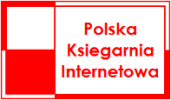Out of stock
Ostatnio widziany
12/10/2021
|
Dostawa do UK zawsze tylko £1.90! (Sprawdź!)
The Iberian Peninsula was, throughout history, an area of conflict. Its wars were more significant than mere local skirmishes, prominent examples being the Christian Reconquista (722-1492 AD), the Spanish war of succession (1701-1714), fighting during the Napoleonic wars (1807-1814), or the civil war of 1936-1939 whose consequences are still felt by the Spanish people today. However, the first time the inhabitants of the Peninsula had to face great armed conflict was the Roman conquest which, barely interrupted, lasted two hundred years (218-19 BC). This made the land one of the most Romanised regions of the Empire. Hence the attempt to explain the formation of a new cultural entity, Roman Spain, remains one of the main issues researched in relation to the region’s history. Moreover, Roman conquest and the administration of the Iberian Peninsula constitutes a key part of the development of Roman imperialism.
Most authors researching Roman presence in Spain so far have focused on the later stages of the Republic and the Empire, or the time when the administration of annexed territories consolidated, and mass colonization by inhabitants of Italy, speeding up the process of Romanisation. Therefore historians are keen to assess Roman relations with the indigenous peoples based on their centuries-long presence in the region. In reality the first period of conquest occurred in entirely different circumstances than the times of Octavian August, not to mention Roman rule during the rule of the „Spanish Emperors”, Trajan or Hadrian. It must be firmly emphasised that, despite undeniable Roman civilisational achievements (especially in city-planning), „voluntary Romanisation” was preceded by ruthless military expansion. We believe that brutal conquest cannot be eclipsed by diminishing the meaning of „primitive and unruly” resistance or euphemisms such as „adaptation of Spain to the Roman political system”. This notion can be found in Polish historiography as, according J. Modrzewska-Pianetti, there is little evidence of violent or repressive treatment of natives by Romans, save for the Numantia tragedy ... . We find that adopting such a perspective fails to take into account the high price paid by both the local people, and the conquerors themselves, for Roman hegemony.
Książka The Roman conquest of Spain 218-178 B.C. - wysyłka UK tylko £1.90.
Irlandia i inne kraje - sprawdź informacja na stronie "dostawa".
Skip to similar books
Skip to product details
Dane bibliograficzne / Bibliographic info
|
Rodzaj (nośnik) / Type of product
|
książka / book
|
|
Dział / Department
|
Książki i czasopisma / Books and periodicals
|
|
Autor / Author
|
Maciej Maciejowski
|
|
Tytuł / Title
|
The Roman conquest of Spain 218-178 B.C.
|
|
Podtytuł / Subtitle
|
Political, military and social aspects
|
|
Język / Language
|
angielski
|
|
Wydawca / Publisher
|
Napoleon V
|
|
Rok wydania / Published in year
|
2014
|
|
Rodzaj oprawy / Binding type
|
Twarda
|
|
Wymiary / Size
|
16.5x24.0
|
|
Liczba stron / Number of pages
|
280
|
|
Ciężar / Weight
|
0.685 kg
|
| |
|
|
ISBN
|
9788378892045 (9788378892045)
|
|
EAN/UPC
|
9788378892045
|
|
Stan produktu / Condition
|
nowy / new - sprzedajemy wyłącznie nowe nieużywane produkty
|
|
Osoba Odpowiedzialna / Responsible Person
|
Osoba Odpowiedzialna / Responsible Person
|
 Szybka wysyłka
Szybka wysyłka









